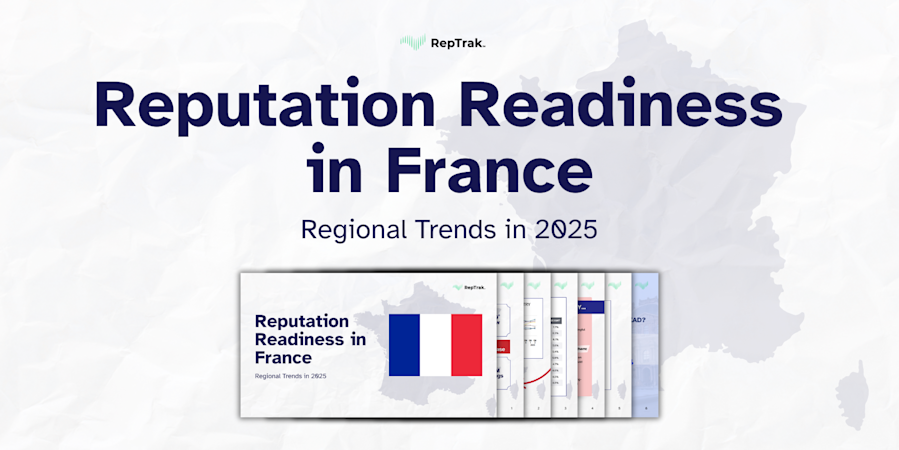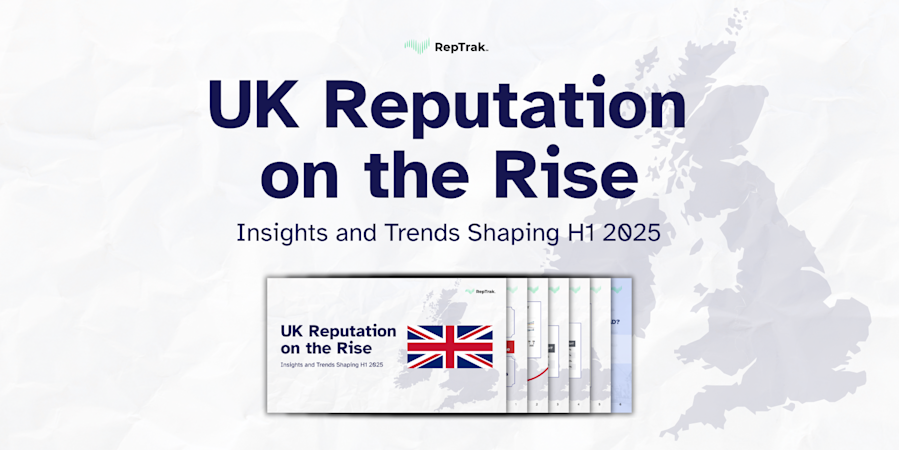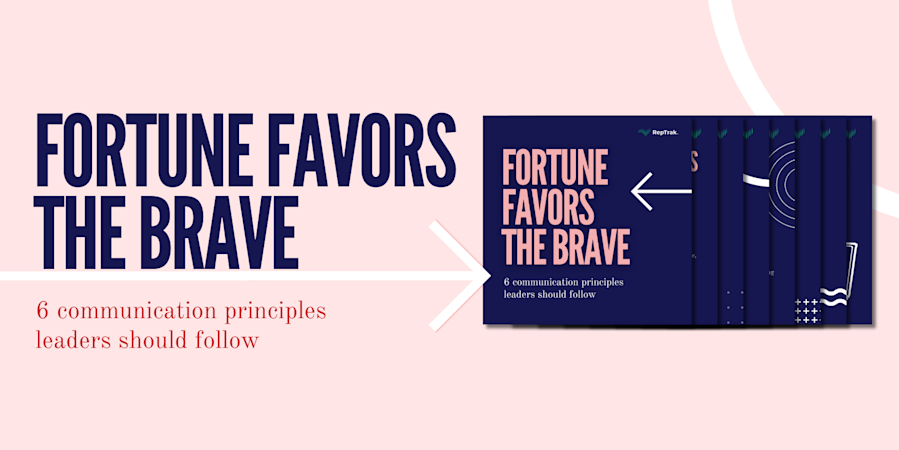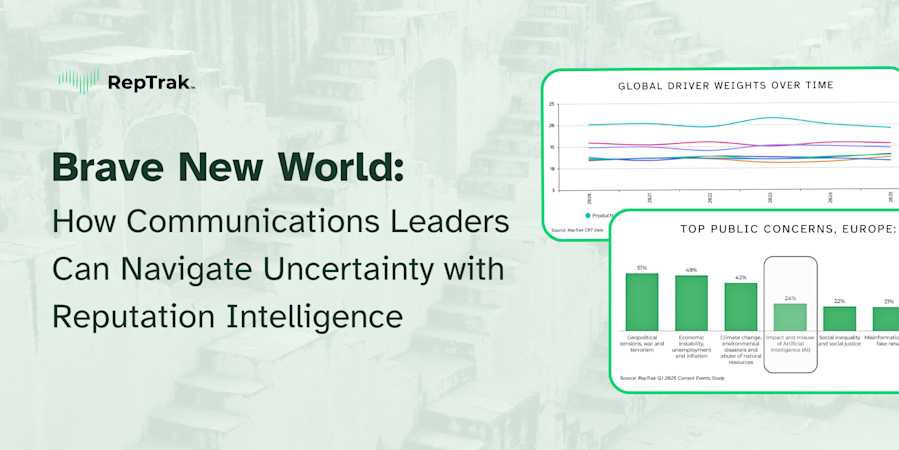Doing and Saying the Right Thing During a Crisis: How Businesses Have Responded to COVID-19
Crisis Communications27 Mar, 2020
Over the past few weeks, as the outbreak of COVID-19 has spread throughout the world, the business community has faced a staggering new reality—one where business-as-usual doesn’t just put you at risk of disruption, it puts the health and safety of the entire planet in danger.
That’s why it’s been heartening to see companies around the globe step up, stand firm, and show an unwavering commitment to their employees, their customers, and their communities—both local and global—during this scary and disorienting time. These businesses have shown remarkable leadership in terms of their public statements, their generosity, their policies, and their willingness to change and adapt in the face of an unprecedented crisis.
That these organizations have taken swift action is partly why respondents to our recent surveys in Italy and the United States said they looked to companies to lead during the crisis more than their governments. Doing and saying the right thing is good business, and at no other time is that more true than during a global pandemic.
It’s worth noting that we haven’t included every company’s efforts here; fortunately, so many businesses around the world have stepped up to do what they can during the crisis—and continue to do so—that mentioning each one would be an endless task. We applaud every business that has taken positive, constructive, helpful action. What follows is a representative sampling of the way some large companies have put people ahead of profit—and tried to make a confusing and chaotic situation clearer and more comfortable for as many people as possible.
Making important resources available to assist healthcare workers
Manufacturer 3M announced on March 22 that it had ramped up production of N95 respirators, critical to protecting frontline healthcare workers and in desperately short supply, to nearly 100 million per month. The company is also looking to expand its global capacity to produce even more.
CEO Mike Roman said in a letter to employees: “I am tremendously proud of you and the work you continue to do every day. This includes the 50,000 people who, in these most challenging circumstances, come to work in our plants and distribution centers to support making and delivering the products that are critical in this fight.”
French luxury brand LVMH—whose brands include Louis Vutton, Dior, and Givenchy—announced it would shift production from its signature perfumes to alcohol-based hand sanitizer, which it would then donate to the French state and hospital system. The company also announced that it was partnering with a Chinese supplier to provide 10 million surgical masks to France with plans to reorder more "for at least four weeks in similar quantities.”
Similarly, L'Oréal Group announced it would use its manufacturing facilities to make hand sanitizer and hydroalcoholic gel for consumers and hospital personnel throughout Europe, and will provide free hand sanitizer to food distribution clients. And Ambev SA, the local subsidiary of Anheuser Busch InBev, announced it would repurpose one of its beer breweries in Brazil to produce half a million hand sanitizer bottles for public hospitals in Sao Paulo, Rio de Janeiro, and Brasilia, where most of the country's coronavirus cases are concentrated.
Gap Inc. announced that it will use its factories to create personal protective equipment like masks, gowns, and scrubs for healthcare workers.
Online travel agency Trip.com has donated 1 million surgical masks to countries like Australia, the U.S., South Korea, and France.
In Spain, El Corte Inglés has turned one of its hotels in the center of Madrid into a hospital, and turned it over to the Spanish government to help relieve congestion in the country’s hospitals. And Grupo Antolin and its employees launched several initiatives to manufacture medical equipment and address the shortage of protective equipment in Spanish hospitals.
In addition, aiming to decongest the healthcare system during the COVID-19 crisis, Spanish insurance company DKV launched a free telemedicine platform for online medical consultations, with the support of two partners: SEMI (Spanish Society of Internal Medicine) and semFYC (Spanish Society of Family and Community Medicine).
In London, UndertheDoormat is opening its luxury short-term rental and vacation homes for free accommodation by National Health Service staff and frontline healthcare professionals. The company is also providing weekly cleanings and fresh linens in partnership with its linen partner LaundryHeap.
Crocs has announced a program to donate 10,000 shoes a day to healthcare workers fighting against the novel coronavirus. Crocs, which are made from a rubber-like molded polymer resin, are waterproof and can be easily washed off, which is one reason why they are popular among medical professionals—especially right now, as people take special precautions to avoid the spread of the coronavirus.
During the peak of the outbreak in China, Johnson & Johnson donated one million masks, as well as goggles, protective suits, thermometers, respirators, contact lenses, and sanitary personal care products to healthcare providers across the country.
Airlines and other travel companies have been some of the hardest hit by the pandemic, but in a tweet from New York Governor Andrew Cuomo, it was announced that JetBlue would be donating free flights for medical volunteers to the state—the epicenter of the epidemic in the United States, and site of more than 5% of total cases worldwide.
Meeting the need for more employees—and higher pay
Many cities, states, and even whole countries have now instituted lockdowns, and residents have been urged to stay home for all but the most essential needs—buying food, accessing medical care, and tending to loved ones. This has put an immense strain on essential businesses, especially grocery stores and other retailers, whether online or brick-and-mortar.
With that in mind, Amazon CEO and founder Jeff Bezos posted an open letter to employees on March 21, putting things into perspective, and explaining that meeting the demands of customers during this stressful and uncertain time, when Amazon might be the only option for many people, was the company’s top priority. At the same time, Bezos said Amazon was focusing on the health and safety of its employees, who he acknowledged must come to a busy warehouse at a time when most people are being urged to stay home and stay away from other people.
"This isn't business as usual, and it's a time of great stress and uncertainty,” he wrote. ”It's also a moment in time when the work we're doing is its most critical."
To that end, while other industries faced layoffs and closures, Amazon announced it would hire as many as 100,000 new employees to help meet rising demand, and would give its warehouse and delivery workers a raise of $2 an hour for the duration of the crisis. The company also established a $25 million relief fund to support delivery drivers and seasonal workers affected by the pandemic, among other charitable efforts.
Walmart has followed Amazon’s lead; the world’s largest retailer says it aims to hire an additional 150,000 workers in its fulfillment centers to meet increased demand, and that it will also be giving those workers a $2 an hour raise through Memorial Day (May 25). Fulfillment center workers will be eligible for an additional $250 bonus after employees they refer have been on the job for 90 days.
Taking care of workers as stores close and hours disappear
As essential businesses struggle to handle the surge in demand caused by the pandemic, retail stores, entertainment venues, and other offline businesses are suddenly shuttered by shelter-in-place decrees. This leaves their workers, most of them hourly, without a way to make much-needed money to pay their rent and feed their families.
Even workers at businesses that remain open face the gut-wrenching choice of staying home when they’re sick or making money they need to live.
Many companies, however, have done the right thing by both closing their doors and taking care of workers. Others have instituted paid sick leave policies for employees. How companies treat their workers during the pandemic has emerged as a key driver of reputation, and these businesses are setting the right example:
Apple is closing more than 400 stores worldwide, but giving its employees full pay during that time. It’s also offering employees unlimited sick time.
Twitter and Google have committed to paying contingent workers—among the most vulnerable—even if the pandemic prevents them from working.
Facebook will give employees $1,000 and six-month bonuses to assist during the pandemic. Facebook employees will also receive at least their full bonuses for the current six-month period.
Microsoft has committed to paying all hourly vendors and workers, even as the shift to remote work at its headquarters reduces the need for their labor.
Clothing stores Patagonia, Allbirds, Urban Outfitters, and Nike are all giving full pay to their workers even as they close most stores worldwide.
Gig workers—like drivers for Uber—will also receive compensation or sick pay if they are affected by the coronavirus.
The Walt Disney Company announced that it would continue to pay employees during park closures (and would provide refunds to anyone planning on visiting during the pandemic)
NBA teams—and their players—are making arrangements for non-salaried stadium and arena staff impacted by canceled games and events.
In Italy, Toyota Motor launched several initiatives, including home fitness courses, via its internal social network as a way to build its employee community during the pandemic.
Of course, not everyone can work from home. So JPMorgan said it would be giving bank tellers and other “front-line employees” a one-time bonus of up to $1,000 to help make working during the COVID-19 pandemic a little easier.
And, because a little appreciation can go a long way, European retail chain Lidl placed an ad in a local newspaper in the Netherlands to say to "all our 19,045 employees, drivers and suppliers: Thank you for your unremitting efforts! Together we are ready for our customers day in day out."
Protecting communities from the broader fallout of the pandemic
While big multinational corporations are able to support their employees through this temporary shutdown, many others—especially those in the restaurant and hospitality sectors—aren’t as lucky. Thankfully, some larger companies have stepped up to provide relief to industries threatened by the pandemic.
Netflix has established a $100 million relief fund for workers in the TV and film industry, primarily on their own series, where productions have been halted around the world.
The New Balance Foundation, the philanthropic arm of the U.S. shoe manufacturer, has committed $2 million in grants to communities impacted by the coronavirus, with emphasis on organizations that support children and families with a focus on health, nutrition, education, and physical activity.
Twitter, recognizing the importance of journalism during the epidemic, as well as the potential impact the company can have on an already faltering industry, has made a $1 million donation, split evenly between the Committee to Protect Journalists and the International Women’s Media Foundation.
Retailer TK Maxx closed all of its U.K. stores, but donated all of its remaining food to the local communities, which totalled more than £5 million worth of stock.
Cisco pledged a $225 million donation in cash and services to support various causes dedicated to combating the spread of COVID-19 and helping those affected.
In the financial sector, banks and other organizations—including Chase, Bank of America, Citi, Wells Fargo, and more—recognize the strain caused by the COVID-19 shutdown. They’re offering to waive fees, defer payments, and work with customers to find solutions. Truist is even offering customers a special 5% back on all purchases they make with their debit card, along with payment relief and ATM surcharge waivers.
Banks in Australia—like Westpac, Commonwealth Bank, ANZ, and National Australia Bank—have made similar offers.
And Bancolombia, the largest financial entity in Colombia, announced a special 600 billion peso ($146.3 million) line of credit for small- and medium-sized businesses and other parts of the corporate sector, among other efforts.
Helping people and businesses cope with a rapid shift in circumstances and routine
In just a few weeks, schools have closed, offices have shifted to remote work, and millions of people are struggling to adjust. Thankfully, many companies have come through with much-needed resources to help smooth the transition.
Zoom, the popular video conferencing software, is giving K–12 schools in China, Japan, Italy, and the United States, free access to help facilitate distance learning during lockdowns. Google has made Hangouts Meet, which allows for conferences of up to 250 people, available to all G Suite customers for free.
Altice USA is providing broadband access to households with K–12 students; mobile carriers Sprint, T-Mobile, and Verizon are giving users unlimited data for 60 days and waiving late fees if customers are unable to pay their bills. Charter has also offered free broadband to households with students who do not currently have it.
And Adobe is offering students free access to its Creative Cloud design and publishing software.
Providing calm and clear leadership in a turbulent time
Beyond these generous policies and changes in production and procedure, many CEOs have stepped up to offer reassurance, calm, and direction in the face of a global crisis of unprecedented scope and unknown duration.
At a time when employees are worried about their jobs, their communities, and the world at large, these executives have demonstrated real leadership, providing reassurance about how their companies are coping with disruption, or with shifted demand, and have explained what they’re doing to help employees and their communities weather this pandemic.
In Canada, 112 business leaders came together to "urge every leader in the country to immediately shift focus to the singular objective of slowing the pace of transmission of this coronavirus" in an op-ed for the Globe and Mail.
Microsoft's Sadya Nadella, Lenovo’s Yuanqing Yang, Sage’s Steve Hare, and Telefónica’s José María Álvarez-Pallete, were among those who posted messages to employees and the community on LinkedIn.
“No one knows how long our everyday lives will be disrupted, but we are committed to following the guidelines set by local officials in each market, to doing all we can to help, and above all else to ensuring the health and safety of our people,” Lenovo Chairman and CEO Yang wrote.
"In the context we are living in because of the COVID-19 outbreak, our purpose becomes more meaningful than ever," Telefónica Chairman and CEO Álvarez-Pallete wrote.
Others have gone even further. For example, Delta Air Lines chief executive officer Ed Bastian said he will forgo his salary for six months to help his company. Ana Botin, President of Banco Santander, said she would cut her salary in half; the unpaid portion will serve as a donation to a charitable fund the bank established to help fight the virus.
An unexpected opportunity
The spread of COVID-19 has wreaked havoc on countries around the world, as well as on the businesses that operate within them.
Yet it has also given so many of these companies the chance to walk the walk when it comes to corporate responsibility: They’ve been able to back up their lofty statements with real action, earning goodwill and good feeling that will last for much longer than the COVID-19 crisis will.
Which companies' efforts to do and say the right thing have impressed you? I'd love to know! Share your thoughts on social media using the hashtag #RepTrak.
Martin Lieberman Director, Content Marketing The RepTrak Company






